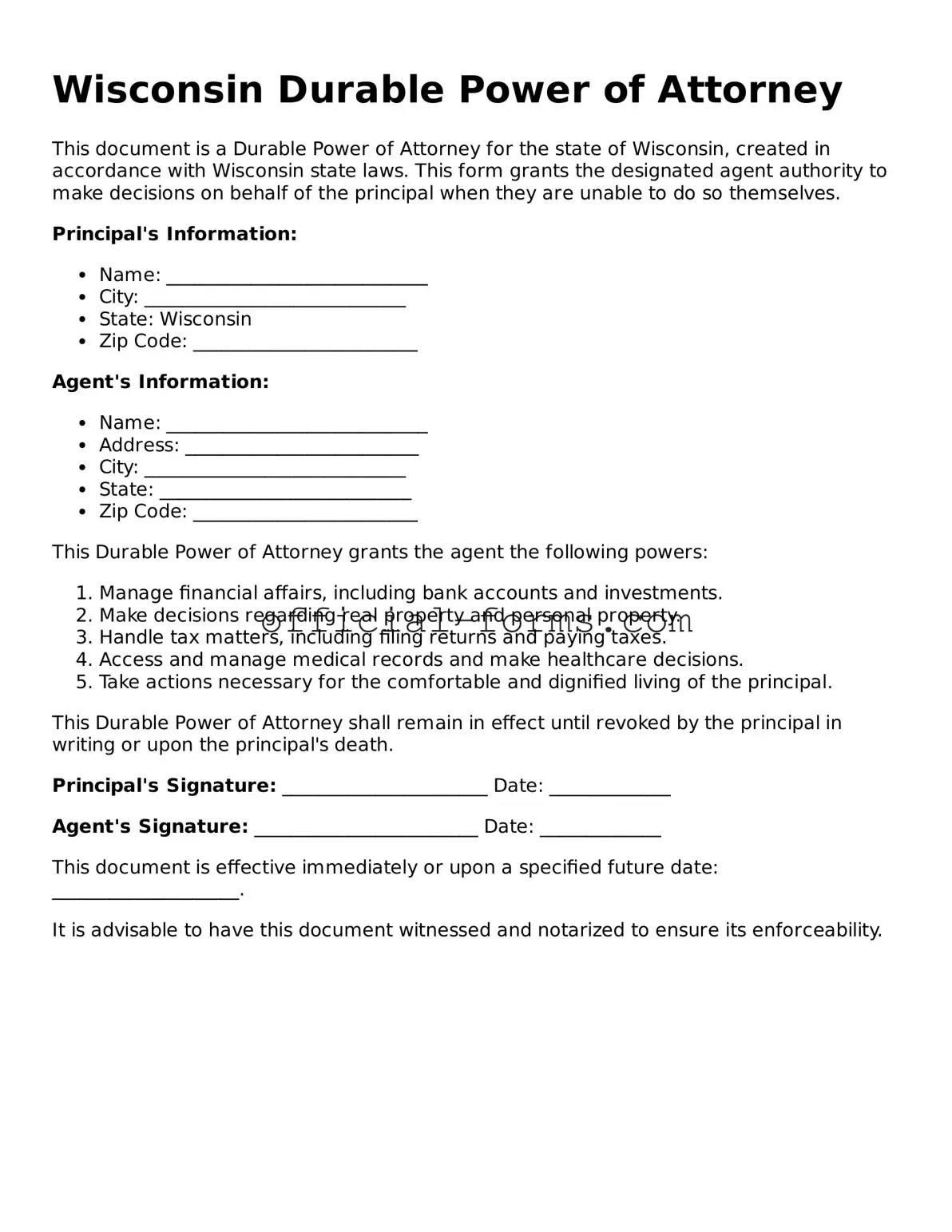Official Wisconsin Durable Power of Attorney Document
A Wisconsin Durable Power of Attorney form is a legal document that allows an individual, known as the principal, to appoint someone else, referred to as the agent, to make decisions on their behalf regarding financial and health matters. This arrangement remains effective even if the principal becomes incapacitated, ensuring that their wishes are honored. Understanding this form is crucial for anyone looking to secure their future and maintain control over their personal affairs.
Open My Durable Power of Attorney Now

Official Wisconsin Durable Power of Attorney Document
Open My Durable Power of Attorney Now
Don’t leave your form incomplete
Finish Durable Power of Attorney online quickly from start to download.
Open My Durable Power of Attorney Now
or
➤ PDF
